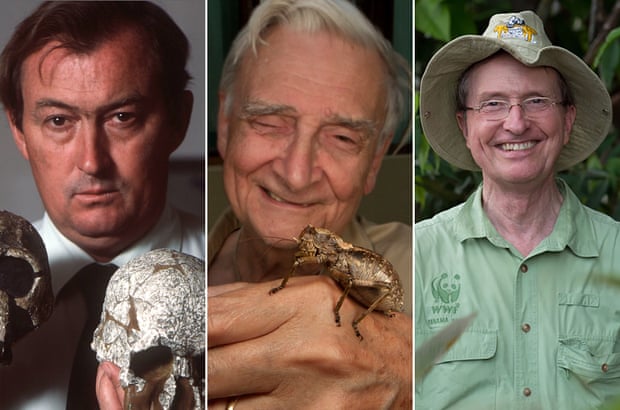by PATRICK GREENFIELD

Friends and colleagues pay tribute after the recent deaths of these groundbreaking naturalists, who shifted our understanding of the world and our future
Over Christmas and the new year, three of the world’s leading naturalists died. Thomas Lovejoy, a conservation biologist credited with popularising the term “biodiversity” and a passionate defender of the Amazon, died on 25 December. A day later, Edward O Wilson, known to many as the “modern-day Darwin”, died in Burlington, Massachusetts. On 2 January, Richard Leakey, a world-renowned Kenyan conservationist who helped establish Africa as the birthplace of humankind, died at his home in Nairobi.
From presidents to undergraduate students, thousands have paid tribute to the three men, whose achievements range from developing theories on forest and island ecosystems to reforming the Kenyan civil service and devising proposals to protect half the planet for nature. Alongside grand accomplishments, which were sometimes controversial, their passing has been a chance to reflect on the small and the mundane: fleeting interactions that inspired careers, kind words that propelled research projects, and generosity of spirit that has helped amplify the voices of those that practise and produce science.
Ricardo Rocha, conservation ecologist
“There’s a whole generation of diverse ecologists and conservationists following in the footsteps of their work,” says Ricardo Rocha, a conservation ecologist from the island of Madeira, who studies bats and the human drivers of biodiversity loss. Holding books written by all three men, he says they all had a massive impact on his career and improved the diversity of their respective fields. “I’m black and I’m European. These were three white men that consciously and unconsciously helped promote a shift in the demographics of the scientific community.”
The Guardian for more
